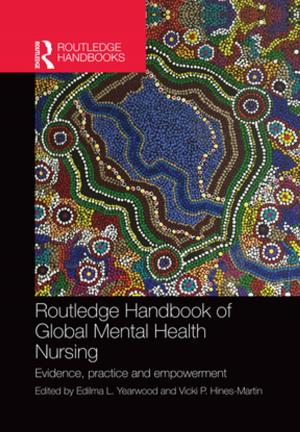Multiple Voices
Narrative in Systemic Family Psychotherapy
Nonfiction, Health & Well Being, Psychology, Mental Health| Author: | ISBN: | 9780429916397 | |
| Publisher: | Taylor and Francis | Publication: | April 24, 2018 |
| Imprint: | Routledge | Language: | English |
| Author: | |
| ISBN: | 9780429916397 |
| Publisher: | Taylor and Francis |
| Publication: | April 24, 2018 |
| Imprint: | Routledge |
| Language: | English |
Part of the Tavistock Clinic Series, this book focuses on narrative and stories in Family Systems Therapy - particularly on how stories develop within the domain of a therapist's own theoretical, clinical and professional contexts. The aim is to allow the reader to understand the uses of stories in family therapy.This book offers a comprehensive overview of issues related to narrative which appear in a family therapy setting. Originally embarking on a joint project to share clinical experience, members of the Family Systems Group at the Tavistock Clinic discovered that what was common in their work was their emphasis on narrative. This discovery led in time to the development of a shared discourse about their diverse approaches to narrative which are carefully reflected in the contributions in this volume. Part One sets out the context of narrative with contributions on bilingualism and the family's experience of therapy, ending with a thought provoking critique of narrative. Part Two concentrates on applications of these ideas, providing analysis of multiple narratives in illness and loss, gender and language, neonatal care, adoption, divorce and refugee families.
Part of the Tavistock Clinic Series, this book focuses on narrative and stories in Family Systems Therapy - particularly on how stories develop within the domain of a therapist's own theoretical, clinical and professional contexts. The aim is to allow the reader to understand the uses of stories in family therapy.This book offers a comprehensive overview of issues related to narrative which appear in a family therapy setting. Originally embarking on a joint project to share clinical experience, members of the Family Systems Group at the Tavistock Clinic discovered that what was common in their work was their emphasis on narrative. This discovery led in time to the development of a shared discourse about their diverse approaches to narrative which are carefully reflected in the contributions in this volume. Part One sets out the context of narrative with contributions on bilingualism and the family's experience of therapy, ending with a thought provoking critique of narrative. Part Two concentrates on applications of these ideas, providing analysis of multiple narratives in illness and loss, gender and language, neonatal care, adoption, divorce and refugee families.















